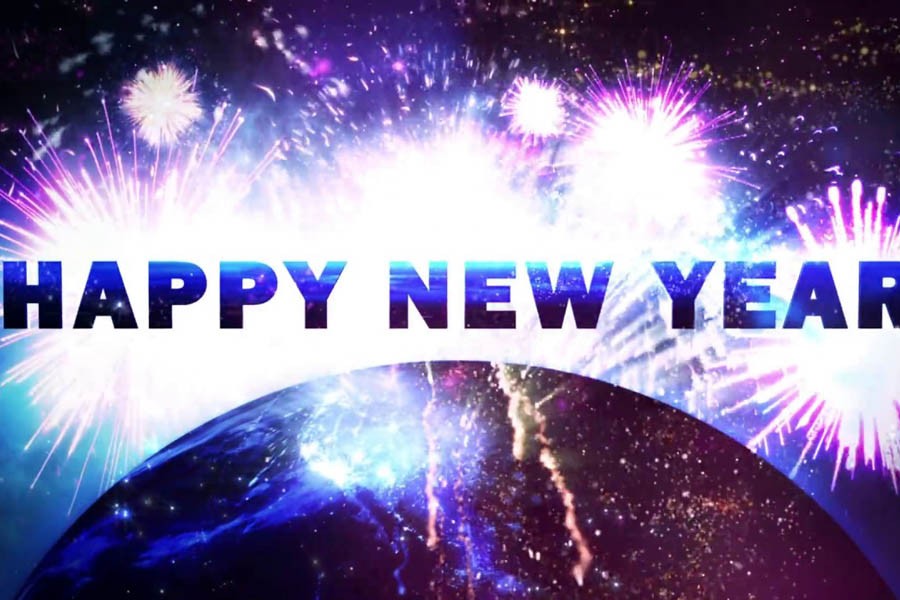The relations between time and space are confounding. It is because man's place here is impermanent and he has a desperate search for anything that will leave an imprint to survive time. For convenience the human race has therefore fractionalised the universal time in order to get some idea of his existence relative to time and space. Thus came into being the count of the time in seconds, minute, hour, day, week, month and year. At one extreme there is millisecond and at the other century or millennium. A year is a considerably long time for the life of a person. So its beginning is a proper occasion for celebration and man has been celebrating it for thousands of years.
If the celebration of the New Year's Day originates from a Pagan tradition, it is no wonder that it was considered unchristian-like in medieval Europe and the January 1st was stripped of its pole position as the day one of the New Year. But Pope Gregory XIII re-established the January 1st as the New Year's Day by bringing some reform to the Gregorian calendar. Yet it took the British until 1752 to adopt the reformed calendar. But in ancient civilisation the beginning of the New Year was observed as early as 4,000 years ago. The earliest recorded celebration is in ancient Mesopotamia by the Babylonians who observed the first new moon following the vernal equinox in late March as the New Year. Either way, man has responded to a cosmic phenomenon in relation to his existence on this planet. Human life's duration on Earth compared to the cosmic bodies' placement and rotation is so ephemeral that it is well-nigh non-existent. But it goes to his credit for leaving an indelible mark by claiming a puny share of the complex relations between him and the universe. He knows full well how to make most of his stay with others of his kind here and enjoy life.
Here man shares in some common belief with his ancestors: one that starts well ends well. Thus people the world over hope for an auspicious start of the day and by extension their lives. They want to spend the day in the happiest of moods possible. But definition of happiness varies from person to person. If people with a religious or spiritual bend of mind would offer prayer to the creator in gratitude for granting them the favour of enjoying life here, the frivolous would go for sensual pleasures. But even from a materialistic point of view, life can be seen as a blessing that should be spent well and in the service of the humanity.
For an individual, a nation and the world community, the New Year is a time for making pledges. The pledges ought to be to improve on the achievements made so far. It is a time for renewal - renewal of hopes and aspiration for the better. Elevation of life on a higher plane should be the aim of every individual from his or her respective modest or high place. Those who find themselves at an advantageous position should extend their helping hands in order to pull out all who are unfortunate to wallow in misery. Helping thus a human bond to prosper and bring everyone in its fold should be the ultimate aim. Happy New Year to all!


